So you’ve been clean and sober, but you’ve relapsed. What now?
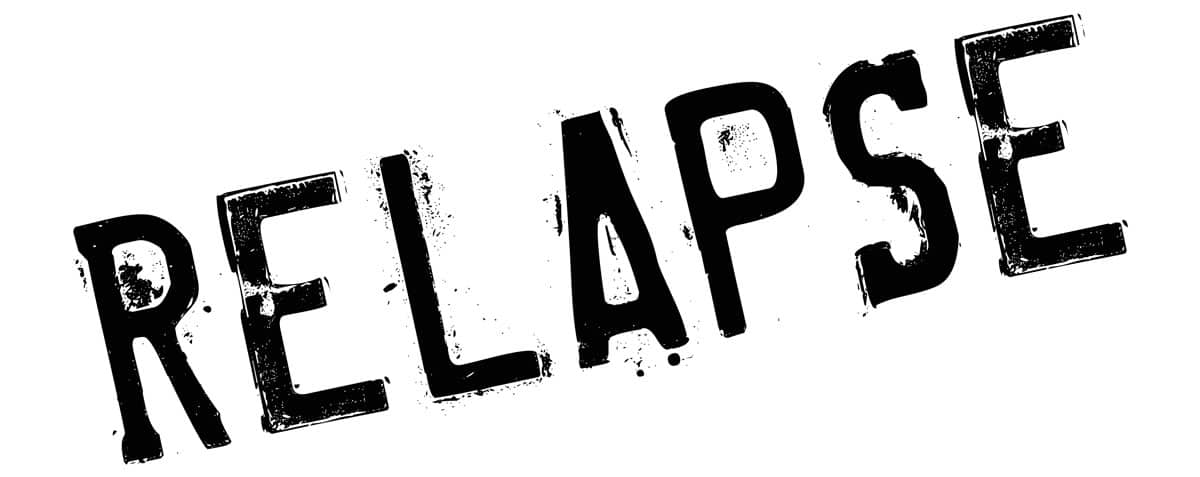
So you’ve relapsed. What now?
Few things are more demoralizing for those in recovery from addiction or alcoholism than a relapse. Call it what you will: a slip or a stumble … going back out, falling off the wagon, picking back up … it all amounts to the same thing: You’ve re-introduced drugs or alcohol to your body after a period of abstinence, and it may or may not be causing a cascade effect of emotions and physical responses that are clawing at the edges of your sanity.
Believe it or not, you’re not alone. According to the National Institute on Drug Abuse (NIDA) [1], “relapse rates for people treated for substance use disorders are compared with those for people treated for high blood pressure and asthma” – 50-70% for asthma and hypertension, and 40-60% for substance use disorders.
As the NIDA points out, “relapse is common and similar across these illnesses. Therefore, substance use disorders should be treated like any other chronic illness. Relapse serves as a sign for resumed, modified, or new treatment.”
Of course, that may be little consolation if you’ve been more than abstinent. For those who actually put in some work on sobriety through a 12 Step recovery program or other self-help group, a relapse can be devastating – not just because of the initial emotional fallout, but because it can cause addicted individuals to spiral back into a destructive cycle of getting, using and finding ways and means to get more at the expense of everything else.
You’ve Relapsed. What Now? Stay Calm
 Bill Lee, a Program Specialist and Interventionist at Cornerstone of Recovery – a drug and alcohol treatment center near Knoxville, Tennessee – understands intimately how relapse can trigger a cycle that returns an addict or an alcoholic into the same state of hopelessness that brought them to recovery in the first place.
Bill Lee, a Program Specialist and Interventionist at Cornerstone of Recovery – a drug and alcohol treatment center near Knoxville, Tennessee – understands intimately how relapse can trigger a cycle that returns an addict or an alcoholic into the same state of hopelessness that brought them to recovery in the first place.
“Anyone who’s been there understands how shameful it feels, how guilty it feels, how it freezes us,” Lee says. “We immediately start to wonder if anybody knows, and if they do, are they going to say anything. We might even avoid going places, like recovery meetings, where we might have to face what’s happened. And in some cases, we’ll continue to use, become increasingly isolated and avoid everyone associated with our recovery.
“The worst case scenario is that days or weeks or months later, we’re sitting at home in our underwear, staring at a blank TV, drinking a beer, hoping nobody comes over and that they might come over at the same time, and wondering what happened. And we can stay stuck like that.”
That’s a grim picture, but if you’ve relapsed, know this: It doesn’t have to get to that point. First, let’s examine a few things about relapse so that you can better understand why this may have happened. Be prepared, though: You may not like what you hear, but hear it you must in order to get to the other side and get back on track.
 “Addiction is about low self-esteem anyway. That’s part of the deal,” Lee says. “If you think about relapse as a process, then it really starts long before you pick up the first drink or drug. It starts when that low self-esteem, that self-loathing, whatever those negative emotions are, begin to creep in. Maybe you’re not going to as many meetings as you used to … maybe some resentments have started, and when you do go, you’re tired of listening to the same people talk about the same old stuff, and you don’t want to go to that meeting anymore. That’s where the relapse really starts, when that kind of thinking really begins to invade my thought process.”
“Addiction is about low self-esteem anyway. That’s part of the deal,” Lee says. “If you think about relapse as a process, then it really starts long before you pick up the first drink or drug. It starts when that low self-esteem, that self-loathing, whatever those negative emotions are, begin to creep in. Maybe you’re not going to as many meetings as you used to … maybe some resentments have started, and when you do go, you’re tired of listening to the same people talk about the same old stuff, and you don’t want to go to that meeting anymore. That’s where the relapse really starts, when that kind of thinking really begins to invade my thought process.”
According to Nicholas Guenzel and Dennis McChargue, writing for the peer-reviewed medical journal StatPearls [2], some prevention programs have gone so far as to break relapse down into three distinct phases:
- “Emotional relapse,” in which an individual has no conscious plans to use or drink but is exhibiting behaviors that belie a certain recklessness, including “isolation, not attending (recovery) meetings (or not sharing in meetings), focusing on other people’s problems, and poor sleeping or eating habits.”
- “Mental relapse,” during which the individual struggles with the two desires of staying sober and using again. “Signs of a mental relapse including craving a substance, thinking about people/places/things associated with their use in the past, exaggerating the positive aspects of past use and/or minimizing the consequences of past use, lying, bargaining, trying to plan ways to use while still maintaining control, seeking opportunities to relapse, and planning a relapse.”
- “Physical relapse,” the final stage where the individual resumes the use of a substance.
So how, then, do those at risk of relapse recognize that they might be in one of these phases? And how do those who have relapsed break the cycle that such phases can become? It’s not always easy, mostly because …
It’s In Your Head. No, Really
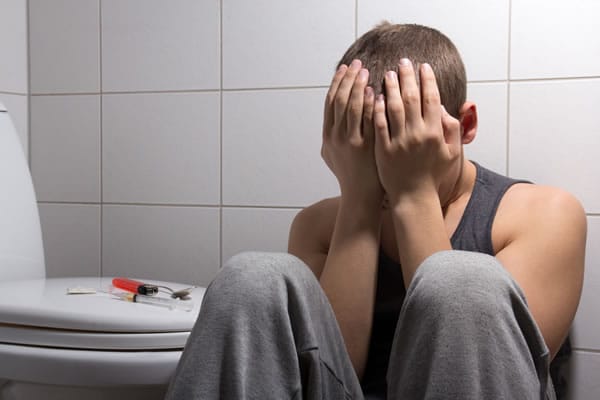 “We know addiction is a brain illness and not a behavior disorder,” Lee says. “Addicts and alcoholics think differently, even when they’re not using. Even when they’re in long-term recovery, that alcoholic and addict thinking is still present, and when we haven’t been to a meeting in a long time, or we don’t reach out to the people we need to reach out to, that’s when things get serious.
“We know addiction is a brain illness and not a behavior disorder,” Lee says. “Addicts and alcoholics think differently, even when they’re not using. Even when they’re in long-term recovery, that alcoholic and addict thinking is still present, and when we haven’t been to a meeting in a long time, or we don’t reach out to the people we need to reach out to, that’s when things get serious.
“We know all of this stuff, but knowing it doesn’t really motivate us to do it. Awareness by itself is not good enough. It’s like it says in the (Biblical) Book of James: ‘Faith without works is dead.’ That’s kind of what this is about: You can have all of the info about addiction in the world, but if you don’t do anything with it, it’s not going to help.”
In that regard, it’s important to frame relapse in the same context as other illnesses. Speaking with U.S. News and World Report [3], “‘Humans have a host of self-destructive behaviors; we do it with food, with lack of exercise, with smoking,’ says Dr. Chinazo Cunningham, professor and associate chief of general internal medicine at Albert Einstein College of Medicine and Montfiore Health System in New York City. ‘How many of us haven’t resumed behaviors we pledged to stop? Changing your behavior is hard.'”
And, as journalist Ruben Castaneda points out, a relapse isn’t solely the domain of those new to the recovery process: “For example, in 2014, Academy Award-winning actor Philip Seymour Hoffman was found dead with a syringe in his arm in his New York apartment. Hoffman, 46, died of acute mixed drug intoxication after injecting himself with a concoction of heroin, cocaine, amphetamine, and benzodiazepines, authorities said. The previous year, the actor told TMZ he’d been sober for 23 years but had relapsed.”
In large part, relapse – the initial return to drug and alcohol use, as well as the continuation of it once the genie is out of the bottle, so to speak – is wrapped up in shame. On the surface, addiction is a doubled-edged sword, writes Owen Flanagan in a 2013 article for the journal Frontiers in Psychiatry [4]: “A failure of normal rational effective agency or self-control with respect to the substance; and shame at both this failure, and the failure to live up to the standards for a good life that the addict himself acknowledges and aspires to.”
Shame, he continues, isn’t a misplaced emotion. If anything, it’s a natural part of the addiction process, “part of the normal phenomenology of addiction, and often a source of motivation for the addict to heal.”
However, when shame precipitates hopelessness, an addict or an alcoholic who relapses may feel irreparably broken, according to a 2013 article in the Association for Psychological Science [5]: “People who feel shame may blame themselves for negative events and view their ‘bad’ behavior as an unchangeable part of who they are. Thus, shame may actually be a risk factor for certain behaviors rather than a deterrent.”
Which begs the question: So you’ve relapsed. What now? Put it in perspective before you succumb to the shame cycle.
Reframing the Relapse Conversation
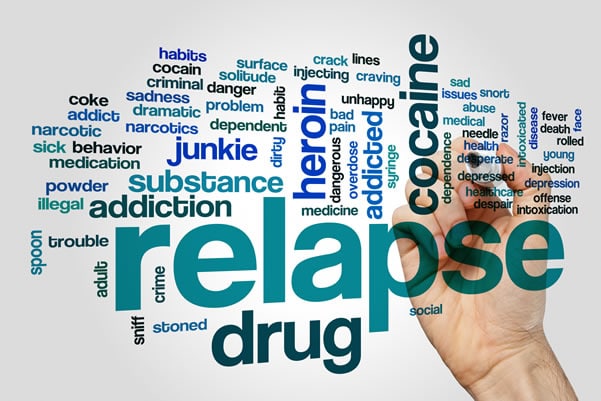 So you’ve relapsed. What now? It’s important to understand that for many addicts and alcoholics, relapse is a part of the process. It doesn’t have to be, but even the Basic Text of Narcotics Anonymous – the blueprint upon which that 12 Step program’s recovery solution is built – devotes an entire chapter to “Recovery and Relapse.”
So you’ve relapsed. What now? It’s important to understand that for many addicts and alcoholics, relapse is a part of the process. It doesn’t have to be, but even the Basic Text of Narcotics Anonymous – the blueprint upon which that 12 Step program’s recovery solution is built – devotes an entire chapter to “Recovery and Relapse.”
In Chapter Seven, the authors write, “Many people think that recovery is simply a matter of not using drugs. They consider a relapse a sign of complete failure, and long periods of abstinence a sign of complete success. We in the recovery program of Narcotics Anonymous have found that this perception is too simplistic. After a member has had some involvement in our Fellowship, a relapse may be the jarring experience that brings about a more rigorous application of the program.” [6]
It’s important to differentiate between acceptance of relapse as part of the process, and approval of it as something that’s to be expected. No one who gets clean and sober has to relapse, but when it occurs, it’s detrimental to treat it as something that deserves scorn, derision or punishment.
“Once an individual becomes addicted, the brain rewires,” Nikki Litvak, MA, LPCC-S, LICDC, the Associate Director of Counseling at BrightView Health told the nonprofit addiction recovery organization Shatterproof [7]. “Relapse is not a choice, but a potential part of the disorder. Most people wouldn’t yell at a loved one who forgot their inhaler at home, and then had an allergic reaction as a result of their medical condition.”
 In fact, as medicine and science come to a greater understanding of the biological changes that take place in the brains of addicts and alcoholics, researchers are discovering that those changes may contribute to the potential for relapse. In other words, while an individual’s ability to make choices that contribute to his or her abstinence, what’s going on in their head can be another matter entirely. Rajita Sinha, in a 2011 paper examining research of biological factors that contribute to relapse risk, found that “while clinical symptoms such as depressive symptoms, history of trauma and high stress, and drug craving represent phenotypes important in identifying individuals entering treatment who may be most susceptible to relapse, exciting new data have begun to identify biological correlates of future relapse.”
In fact, as medicine and science come to a greater understanding of the biological changes that take place in the brains of addicts and alcoholics, researchers are discovering that those changes may contribute to the potential for relapse. In other words, while an individual’s ability to make choices that contribute to his or her abstinence, what’s going on in their head can be another matter entirely. Rajita Sinha, in a 2011 paper examining research of biological factors that contribute to relapse risk, found that “while clinical symptoms such as depressive symptoms, history of trauma and high stress, and drug craving represent phenotypes important in identifying individuals entering treatment who may be most susceptible to relapse, exciting new data have begun to identify biological correlates of future relapse.”
The paper, published in a 2011 edition of Current Psychiatry Reports [8], goes on to point out that “these include high cortisol levels at baseline, at resting state, and with drug cue challenge. High levels of serum BDNF and high levels of adrenal sensitivity (cortisol/ACTH ratio) were also found to be predictive of relapse. Using neuroimaging, brain atrophy in the medial frontal brain region was found to predict alcohol relapse risk, and hyperreactivity of the anterior cingulate cortex was found to be associated with withdrawal and relapse risk. These findings suggest that there are key neural and biological changes associated with chronic alcohol and drug abuse that are also important as clinical predictors of relapse.”
It should be stressed, however, that while such findings shouldn’t be dismissed as unimportant, they should also be understood within the context that relapse begins with a choice. Despite any biological motivations, addiction isn’t some body-snatching force that takes control. Addicts and alcoholics who relapse may be unaware of what’s going on within that pushes them to choose a return to alcohol and drugs, but they’re still in control of their decision-making abilities. Which is why it’s all the more imperative that they use those abilities to make choices that can deter the potential for relapse.
So You’ve Relapsed. What Now? Retool Your Approach
 A huge factor in relapse avoidance comes through laying the groundwork early in the recovery process for a robust program that safeguards against returning to drug and alcohol use. As Guenzel and McChargue point out [2], “The prevention of relapses is perhaps the most fundamental task in addiction recovery. Five broad strategies have been used in relapse prevention: 1. therapy, 2. medications, 3. monitoring, 4. peer support, and 5. emerging interventions. Individuals often combine two or more of these approaches in their recovery plans.” (It should be noted, however, that the fifth strategy – “emerging interventions” – deals largely with hypothetical and experimental treatments that have yet to receive widespread clinical scrutiny or application.)
A huge factor in relapse avoidance comes through laying the groundwork early in the recovery process for a robust program that safeguards against returning to drug and alcohol use. As Guenzel and McChargue point out [2], “The prevention of relapses is perhaps the most fundamental task in addiction recovery. Five broad strategies have been used in relapse prevention: 1. therapy, 2. medications, 3. monitoring, 4. peer support, and 5. emerging interventions. Individuals often combine two or more of these approaches in their recovery plans.” (It should be noted, however, that the fifth strategy – “emerging interventions” – deals largely with hypothetical and experimental treatments that have yet to receive widespread clinical scrutiny or application.)
And those plans, Lee points out, are often long-term. Recovering addicts and alcoholics are encouraged to take their sobriety “one day at a time,” but that’s predicated on the idea that part of each day is dedicated to putting in more legwork than simply staying abstinent.
“Part of the recovery process is understanding that it’s really a way of life,” Lee says. “It’s not like I was an alcoholic and my drinking was out of control – I still have things to do today to stay sober, and if I don’t do them, I’m in danger. There’s no guarantee that if I don’t do these things, I’ll stay sober, and I think that’s part of what happens with relapse. Ego gets in the way, intelligence gets in the way, a lot of things get in the way, because addicts and alcoholics can be really stubborn.”
So what do four of those five strategies look like? The term used by Guenzel and McChargue – “broad” – gives individuals a wide swath of choices to draw from:
- Therapy: This might mean individual therapy, or for those who have relapsed but are in danger of continuing to use, it could mean returning to an addiction treatment program – specifically one that offers a relapse preventative curriculum. A number of therapeutic techniques, including Cognitive Behavioral Therapy and Acceptance And Integration Training, can challenge and change the relationship between addicted individuals and the substances that have caused them so many problems.
- Medications: While there are three federally approved drugs used in Medically Assisted Treatment programs around the country, only one – naltrexone – has no addictive properties in and of itself. It shows some effectiveness when used by alcoholics, but for opioid addicts, it’s been a game-changing medication that helps tame cravings, one of the hardest mental hurdles for addicts to overcome.
 Monitoring: For individuals in certain safety-sensitive jobs, the success rates of recovery are higher because monitoring is required in order for them to return to work. But what about those who aren’t recovering under pressure from an employer? That’s one reason enrolling in an Intensive Outpatient Program (IOP) can be beneficial. Early recovery can be perilous territory for those grappling with a drug or alcohol problem anyway, as officials with Shatterproof point out [9]: “While detoxification begins the process of detoxifying your system from the effects of drugs and alcohol, it doesn’t reverse the changes in the brain that have been caused by drugs or alcohol. As a result, the recovering brain will always be more susceptible to a craving activating a compulsion to use. That’s why long-term treatment is important for long-term recovery.” Enrolling in an IOP program, where participants are often required to submit to random drug testing, can provide the monitoring those individuals may need to hold themselves accountable in early recovery.
Monitoring: For individuals in certain safety-sensitive jobs, the success rates of recovery are higher because monitoring is required in order for them to return to work. But what about those who aren’t recovering under pressure from an employer? That’s one reason enrolling in an Intensive Outpatient Program (IOP) can be beneficial. Early recovery can be perilous territory for those grappling with a drug or alcohol problem anyway, as officials with Shatterproof point out [9]: “While detoxification begins the process of detoxifying your system from the effects of drugs and alcohol, it doesn’t reverse the changes in the brain that have been caused by drugs or alcohol. As a result, the recovering brain will always be more susceptible to a craving activating a compulsion to use. That’s why long-term treatment is important for long-term recovery.” Enrolling in an IOP program, where participants are often required to submit to random drug testing, can provide the monitoring those individuals may need to hold themselves accountable in early recovery.- Peer support: There’s a reason that in recovery circles, it’s often said that “meeting makers make it” – because anecdotal evidence has long demonstrated that those who take part in recovery programs, 12 Step or otherwise, with peers can be an effective deterrent to relapse. Science and medicine concur: “After evaluating 35 studies – involving the work of 145 scientists and the outcomes of 10,080 participants – Keith Humphreys, PhD, professor of psychiatry and behavioral sciences, and his fellow investigators determined that AA was nearly always found to be more effective than psychotherapy in achieving abstinence,” according to a March report by the Stanford School of Medicine [10].
Of course, if you’ve relapsed, in spite of taking part in some (or all) of these measures, you may be beating yourself up with a big ol’ shame bat. A suggestion, if you will? Put it down. As the writers of that Association of Psychological Science paper point out [5], “Feeling guilt about previous behavior, as opposed to shame about being a ‘bad’ person, may be an important component of recovery. ‘One reason that certain sobriety programs may be effective,’ the researchers say, ‘is because they encourage people to see their behaviors as something they should feel guilty, but not necessarily shameful, about.'”
You’ve Relapsed. What Now? Get to Work
 Of course, it’s not always easy to differentiate between the two, especially when the gravity of your situation has become readily apparent. As Flanagan points out [4], however, either one can be a powerful motivator: “there are many reasons for the addict to forgive himself and engage in the difficult project of reconstruction and improvement with the knowledge that his agentic capacities in relation to the Substance are compromised, deficient.”
Of course, it’s not always easy to differentiate between the two, especially when the gravity of your situation has become readily apparent. As Flanagan points out [4], however, either one can be a powerful motivator: “there are many reasons for the addict to forgive himself and engage in the difficult project of reconstruction and improvement with the knowledge that his agentic capacities in relation to the Substance are compromised, deficient.”
So how, then, can individuals come back from a relapse and use it as an experience from which they can grow – and become even stronger in addiction recovery? In other words, what’s the answer to the question: “So you’ve relapsed. What now?” Steven M. Melemis, writing for the Yale Journal of Biology and Medicine in 2015 [11], took his 30 years of experience in treatment programs and private practice to develop five basic rules of recovery for individuals to help “them understand that recovery is not complicated or beyond their control.” They include:
- Change your life. “Recovery involves creating a new life in which it is easier to not use,” Melemis writes. “When individuals do not change their lives, then all the factors that contributed to their addiction will eventually catch up with them.” It’s important to point out that change doesn’t happen overnight, nor does it have to involve a drastic overhaul. In many cases, small changes can have a great impact, and “if they make the necessary changes, they can go forward and be happier than they were before.”
- Be Completely Honest. “It is often said that recovering individuals are as sick as their secrets,” according to Melemis. “One of the challenges of therapy is to help clients practice telling the truth and practice admitting when they have misspoken and quickly correcting it.”
 Ask for Help. That peer support stuff? Melemis is in agreement: “Joining a self-help group has been shown to significantly increase the chances of long-term recovery. The combination of a substance abuse program and self-help group is the most effective.”
Ask for Help. That peer support stuff? Melemis is in agreement: “Joining a self-help group has been shown to significantly increase the chances of long-term recovery. The combination of a substance abuse program and self-help group is the most effective.”- Practice Self-Care. As Melemis points out, addicts and alcoholics are often self-sacrificing and binary thinking. It’s often an all-or-nothing approach to life, but that’s one reason why addicts and alcoholics can still go to meetings, work with a sponsor, work the 12 Steps … and still relapse. “Part of challenging addictive thinking is to encourage clients to see that they cannot be good to others if they are first not good to themselves,” he writes.
- Don’t Bend the Rules. “Broadly speaking, once clients have been in recovery for a while, they can be divided into two categories: non-users and denied users,” Melemis writes. “Non-users say that using was fun but acknowledge that it has not been fun lately. They want to start the next chapter of their life. Denied users will not or cannot fully acknowledge the extent of their addiction.”
And that, he adds, is why some addicts and alcoholics can relapse after five, 10 or 15 years. Simply put, they lose perspective, romance the good times, play down the bad and aren’t engaging in those five basic rules. As Assistant Director of the Recovery Renewal Program at Cornerstone of Recovery, it’s something Lee sees regularly: Individuals who get to a point in their recovery where they’re “just kind of marking time.”
“For decades, we’ve compared addiction to diabetes, and as a diabetic, I really like that comparison,” Lee says. “My blood sugar can be absolutely perfect one day, but there’s no guarantee it’s going to be absolutely perfect the next day, and it’s the same for recovery: One day of recovery doesn’t guarantee another day of recovery.
“In fact, some people have suggested that the more recovery we have, the closer we become to relapse, because if we forget where we come from, we get too confident.”
And without vigilance, those individuals become the subject of the question: You’ve relapsed. What now?
There really is only one right answer: Put aside shame before it keeps you languishing in darkness, get back on the metaphorical horse of sobriety and keep riding toward the light.
SOURCES
[1]: https://www.drugabuse.gov/publications/drugs-brains-behavior-science-addiction/treatment-recovery
[2]: https://www.ncbi.nlm.nih.gov/books/NBK551500/
[3]: https://health.usnews.com/wellness/articles/2017-04-24/why-do-alcoholics-and-addicts-relapse-so-often
[4]: https://www.ncbi.nlm.nih.gov/pmc/articles/PMC3792617/
[5]: https://www.psychologicalscience.org/news/releases/shame-about-past-alcoholism-predicts-relapse-and-declining-health-in-recovering-alcoholics.html
[6]: https://na.org/admin/include/spaw2/uploads/pdf/litfiles/us_english/IP/EN3106.pdf
[7]: https://www.shatterproof.org/blog/how-help-loved-one-when-addiction-symptoms-recur
[8]: https://www.ncbi.nlm.nih.gov/pmc/articles/PMC3674771/
[9]: https://www.shatterproof.org/recovery/The-Reality-of-Relapse
[10]: https://med.stanford.edu/news/all-news/2020/03/alcoholics-anonymous-most-effective-path-to-alcohol-abstinence.html

